This article about Dennis was written at the beginning of 2013.
We are sad to say that Dennis died on July 14, 2014. A wonderful memorial was held for him in Lawrence, KS on August 2.
His work on the strengths perspective was lauded, and the difference he made in peoples’ lives was much discussed. His legacy will continue to live on. Here is the original article.
————
Dennis Saleebey was a passionate believer in encouraging people to build on their strengths.
He translated this into practice with colleagues at The Strengths Institute, which is part of the school of social welfare at the University of Kansas. He believed that:
“All humans, somewhere within, have the urge to be heroic; to transcend circumstances, to develop one’s powers, to overcome adversity, to stand up and be counted.”
Dennis and his colleagues recognised that many people suffer great adversity. At the same time, they believed that people have within them resources they can use to shape fulfilling lives.
Here is an overview of the model they have used to help people to achieve their goals.
Discovering People’s Strengths
How to discover people’s strengths? Dennis and his colleagues describe many approaches on the Institute’s site. Here is a direct quote that you can find at the following link.
http://www.socwel.ku.edu/strengths/about/index.shtml
There are many different questions that can be used to discover internal and external strengths. For a more complete reference, see Saleebey (2006) and De Jong and Miller (1995). Nevertheless, strength-discovery questions are endless.
1. Survival questions: How have you managed to overcome/survive the challenges that you have faced? “What have you learned about yourself and your world during those struggles?” (Saleebey, 2006, p. 87)
2. Support questions: Who are the people that you can rely on? Who has made you feel understood, supported, or encouraged?
3. Exception questions: “When things were going well in life, what was different?” (Saleebey, 2006, p.87)
4. Possibility questions: What do you want to accomplish in your life? What are your hopes for your future, or the future of your family?
5. Esteem questions: What makes you proud about yourself? What positive things do people say about you?
6. Perspective questions: “What are your ideas about your current situation?” (Saleebey, 2006, p.87)
7. Change questions: What do you think is necessary for things to change? What could you do to make that happen?
A word of caution is necessary here. Any strengths-based assessment must proceed from the belief in the client and it should not become a verdict or sentence for the client.
Repeating these questions or filling out a strengths-based form does not mean that you are working from the Strengths Perspective.
A profound belief in the client’s potential is intrinsic to any strengths-based assessment.
Thinking about strengths begins with the understanding what goals and dreams the person has; reflecting on the possibilities and hope in their lives.
In this process, they can discover or develop new possibilities for themselves and change toward a better quality of life.
References Saleebey, D. (Ed.). (2006). The Strengths Perspective in social work practice (4th ed.). Boston: Allyn & Bacon.
Here is a link to the article by Peter De Jong and Scott Miller on How To Interview For Client Strengths.
You can discover more about the Institute’s work at the following link.


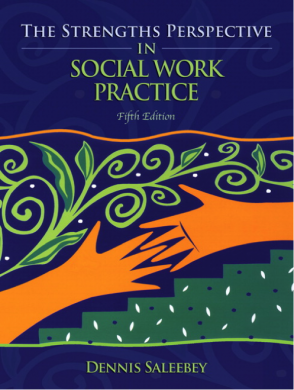
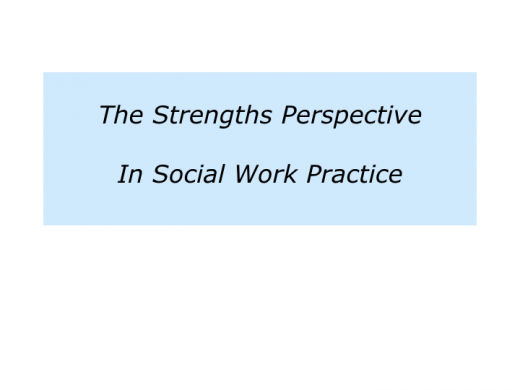
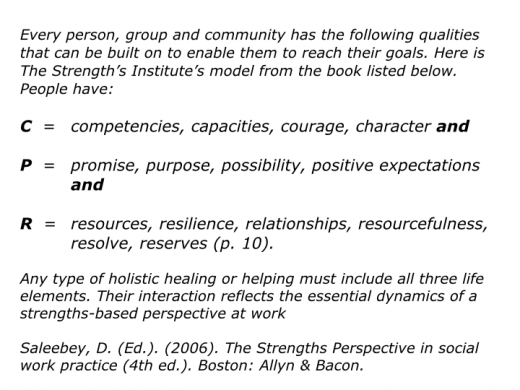
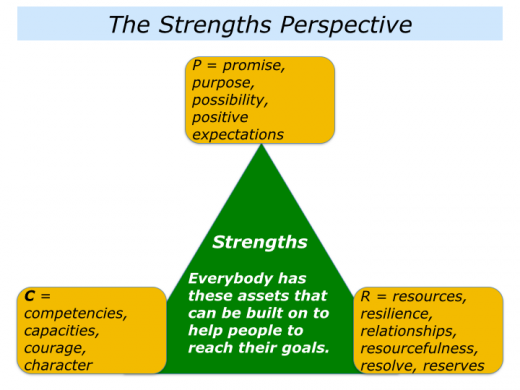
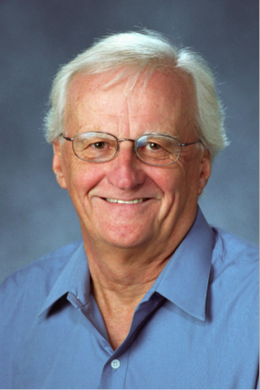




[…] Brown’s CourageWorks courses as well as mindtools.com. I’m keeping it all in balance by using Dennis Saleeby’s “Strengths Perspective” – using my strengths to help me meet my challenges. For example, I’m pretty determined […]